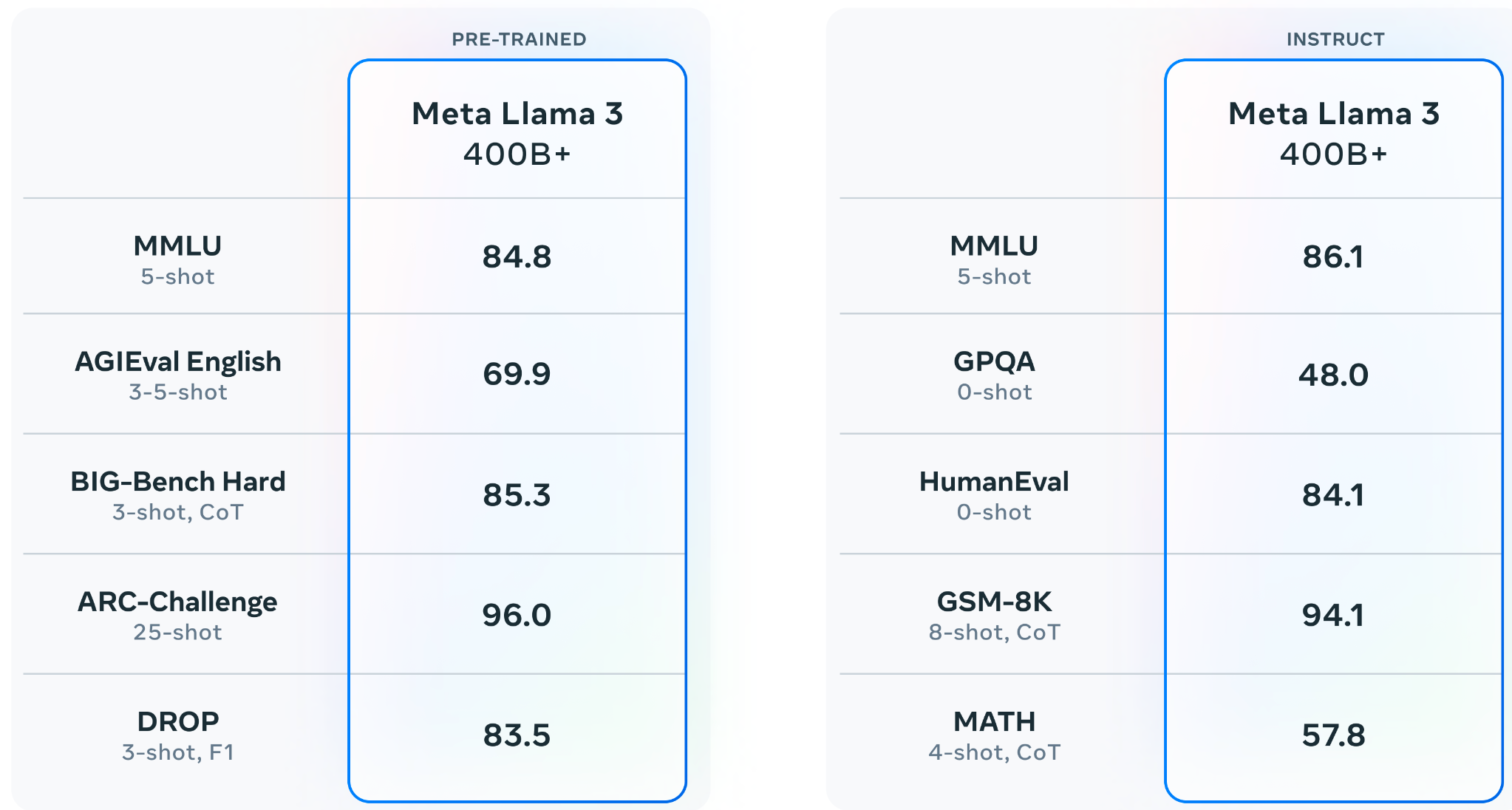Meta is reportedly preparing to release its 400B parameter Llama 3 model but the EU will miss out on the multimodal version.
A Meta employee told The Information that Llama 3 400B will be released on 23 July. Since launching its 8B and 70B models in April, Meta has been hinting at a 400B multimodal that would “leave its predecessors in the dust.”
For now, all we have is some benchmark figures that Meta released while Llama 3 400B was still in training in April.

If Llama 3 400B does drop next week, it will likely represent the most advanced open multimodal model available. Although it may be quite as “open” as Meta’s other models.
A well-known source of AI leaks on X, Jimmy Apples, hinted that Meta may not open the weights of the 400B model.
Meta plans to not open the weights for its 400B model.
The hope is that we would quietly not notice / let it slide.
Don’t let it slide.
— Jimmy Apples 🍎/acc (@apples_jimmy) May 22, 2024
Either way, when the multimodal model is released, you won’t get to use it if you live in the EU.
Last month, Meta canceled plans to use social media data from EU citizens to train its models after pushback from data regulators and privacy advocates.
Now, Meta says it will withhold all future multimodal models from EU users citing a lack of clarity and the “unpredictable nature of the European regulatory environment.”
EU users will instead get a larger text-only version of Llama 3 at some point but will miss out on the image and audio capabilities, or even Meta’s Ray-Ban smart glasses and smartphones.
Meta has said that for it to be able to offer a quality product to EU users, it would need to use EU users’ Facebook and Instagram posts as training data.
Current GDPR rules don’t seem to allow for that, and the EU AI Act to be released next month is likely to add to data regulations.
Adding to the woes of the biggest AI developers is the EU Digital Markets Act (DMA) which is designed to prevent Big Tech companies from gaining a monopoly over the EU tech market.
Last month, Apple decided to hold back on rolling out its new AI features in the EU over concerns that it may not be able to comply with the DMA rules.
The EU’s regulations provide its citizens with protections that the rest of the world doesn’t have.
But it may also keep them from accessing the latest AI tech the rest of us get to play with.





